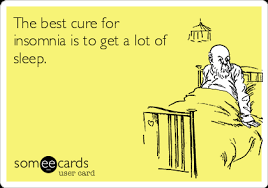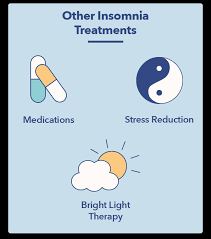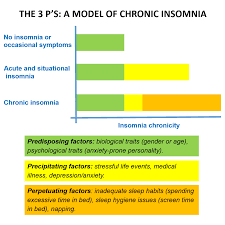The Best Cure for Insomnia: Understanding and Overcoming Sleepless Nights
Insomnia is a common sleep disorder that affects millions of people worldwide. It can manifest as difficulty falling asleep, staying asleep, or waking up too early and not being able to go back to sleep. Chronic insomnia can have a significant impact on one’s physical health, mental well-being, and overall quality of life.
Understanding Insomnia
Insomnia can be caused by various factors, including stress, anxiety, depression, poor sleep habits, medical conditions, or certain medications. Understanding the underlying cause of your insomnia is crucial in finding the best cure for your specific situation.
Tips for Overcoming Insomnia
While there is no one-size-fits-all solution for insomnia, there are several strategies that can help improve your sleep quality:
- Establish a bedtime routine: Create a relaxing bedtime routine to signal to your body that it’s time to wind down and prepare for sleep.
- Avoid stimulants: Limit caffeine and nicotine intake, especially close to bedtime, as they can interfere with your ability to fall asleep.
- Create a comfortable sleep environment: Make sure your bedroom is conducive to sleep by keeping it dark, quiet, and at a comfortable temperature.
- Avoid screen time before bed: The blue light emitted by screens can disrupt your body’s production of melatonin, a hormone that regulates sleep.
- Practice relaxation techniques: Techniques such as deep breathing exercises, meditation, or progressive muscle relaxation can help calm your mind and body before bedtime.
- Consider therapy or counseling: Addressing underlying psychological issues such as anxiety or depression through therapy can significantly improve your ability to fall asleep and stay asleep.
The Role of Professional Help
If you have tried various self-help strategies without success or if your insomnia persists despite your efforts, it may be beneficial to seek professional help. A healthcare provider or sleep specialist can help diagnose any underlying conditions contributing to your insomnia and recommend appropriate treatment options.
In some cases, cognitive-behavioral therapy for insomnia (CBT-I) may be recommended. CBT-I is a structured program that helps individuals identify and change thoughts and behaviors that contribute to their sleep problems.
In Conclusion
Finding the best cure for insomnia involves understanding the root cause of your sleep troubles and implementing personalized strategies to improve your sleep quality. By prioritizing good sleep hygiene practices and seeking professional guidance when needed, you can take steps towards overcoming insomnia and enjoying restful nights once again.
Top 5 Benefits of the Best Insomnia Cure: Enhancing Life Through Better Sleep
- Improves overall quality of life by promoting restful and rejuvenating sleep.
- Enhances mental clarity, focus, and cognitive function through better sleep patterns.
- Reduces the risk of developing chronic health conditions associated with long-term sleep deprivation.
- Supports emotional well-being by reducing stress, anxiety, and mood disturbances linked to insomnia.
- Boosts energy levels and productivity during the day by ensuring adequate rest at night.
Challenges in Finding the Best Cure for Insomnia: Personal Variability, Side Effects, Time Investment, and Risk of Dependency
- Not every cure works for everyone, as the effectiveness of treatments can vary from person to person.
- Some treatments may have side effects or interactions with other medications, requiring careful consideration and monitoring.
- Finding the right cure for insomnia may require time and experimentation, leading to potential frustration and setbacks along the way.
- Certain cures for insomnia, such as prescription medications, may carry risks of dependency or tolerance if not used appropriately.
Improves overall quality of life by promoting restful and rejuvenating sleep.
By promoting restful and rejuvenating sleep, the best cure for insomnia significantly improves overall quality of life. Adequate and quality sleep is essential for physical health, mental well-being, and cognitive function. When individuals experience deep and uninterrupted sleep, they wake up feeling refreshed, energized, and ready to tackle the day ahead. This rejuvenating sleep not only enhances mood and productivity but also supports long-term health by strengthening the immune system and promoting optimal functioning of the body and mind.
Enhances mental clarity, focus, and cognitive function through better sleep patterns.
One significant benefit of finding the best cure for insomnia is the enhancement of mental clarity, focus, and cognitive function through improved sleep patterns. Quality sleep plays a crucial role in cognitive processes, memory consolidation, and overall brain function. By addressing and overcoming insomnia, individuals can experience sharper focus, better decision-making abilities, and improved mental acuity throughout the day. Prioritizing restful sleep can lead to heightened cognitive performance and a clearer mind, ultimately supporting overall well-being and productivity.
Reduces the risk of developing chronic health conditions associated with long-term sleep deprivation.
One significant advantage of finding the best cure for insomnia is that it helps reduce the risk of developing chronic health conditions associated with long-term sleep deprivation. By addressing and improving sleep quality, individuals can lower their chances of experiencing serious health issues such as heart disease, diabetes, obesity, and mental health disorders that are linked to prolonged periods of inadequate sleep. Prioritizing effective treatments for insomnia not only enhances overall well-being but also plays a crucial role in preventing the onset of debilitating health conditions related to chronic sleep deprivation.
Supports emotional well-being by reducing stress, anxiety, and mood disturbances linked to insomnia.
One of the significant benefits of finding the best cure for insomnia is its positive impact on emotional well-being. By addressing and improving sleep quality, individuals can experience a reduction in stress, anxiety, and mood disturbances commonly associated with insomnia. Better sleep habits and quality rest can help regulate emotions, enhance resilience, and promote a sense of calmness and balance in daily life. Prioritizing effective treatment for insomnia not only improves sleep but also contributes to overall emotional health and well-being.
Boosts energy levels and productivity during the day by ensuring adequate rest at night.
Ensuring adequate rest at night through the best cure for insomnia can significantly boost energy levels and productivity during the day. By addressing sleep issues and improving sleep quality, individuals can experience increased alertness, focus, and mental clarity throughout their waking hours. Adequate rest allows the body to recharge and repair, leading to enhanced cognitive function, better decision-making abilities, and overall improved performance in daily tasks. Prioritizing quality sleep as a key component of wellness not only benefits physical health but also contributes to a more productive and fulfilling life.
Not every cure works for everyone, as the effectiveness of treatments can vary from person to person.
Not every cure for insomnia works universally, as the effectiveness of treatments can vary significantly from person to person. What works well for one individual may not yield the same results for another. Factors such as underlying health conditions, lifestyle habits, stress levels, and personal preferences can all influence how a particular remedy or approach impacts an individual’s ability to sleep. It is important to recognize this variability and be open to trying different strategies or seeking professional guidance to find the most effective solution tailored to one’s unique needs and circumstances.
Some treatments may have side effects or interactions with other medications, requiring careful consideration and monitoring.
When exploring potential cures for insomnia, it is important to acknowledge that some treatments may come with associated risks. Certain medications or therapies used to address sleep issues can have side effects or interactions with other medications, necessitating careful consideration and monitoring. It is crucial for individuals seeking relief from insomnia to consult healthcare professionals to ensure that the chosen treatment approach is safe and effective for their specific health conditions and circumstances. Vigilance in understanding potential side effects and interactions can help mitigate risks and optimize the effectiveness of the chosen insomnia remedy.
Finding the right cure for insomnia may require time and experimentation, leading to potential frustration and setbacks along the way.
In the quest for the best cure for insomnia, it’s important to acknowledge that the process may involve a period of trial and error. Finding the right solution to address sleepless nights can be a journey that requires patience and persistence. It may take time to discover what works best for your individual needs, and this experimentation phase can be accompanied by moments of frustration and setbacks. However, it’s crucial to remain committed to improving your sleep quality and not get discouraged by temporary challenges along the way. With determination and a willingness to explore different strategies, overcoming insomnia is possible.
Certain cures for insomnia, such as prescription medications, may carry risks of dependency or tolerance if not used appropriately.
Certain cures for insomnia, such as prescription medications, may carry risks of dependency or tolerance if not used appropriately. While these medications can be effective in helping individuals with severe insomnia achieve better sleep, long-term reliance on them can lead to issues such as drug dependence or the need for higher doses to achieve the same effect. It is important for individuals considering prescription medications for insomnia to work closely with their healthcare provider to monitor usage and explore alternative treatments that may be less likely to result in dependency or tolerance over time.




